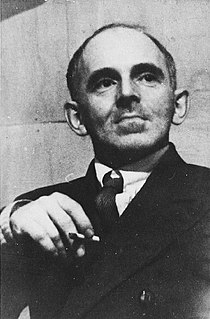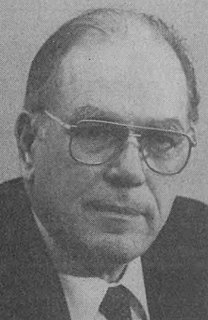A Quote by Osip Mandelstam
I was stopped in the dense Soviet wood by bandits who called themselves my judges.
Related Quotes
Democracy demands that judges confine themselves to a narrow sphere of influence - that is why the late Alexander Bickel called the judiciary the 'Least Dangerous Branch.' In a world governed by a proper conception of their role, judges don't play at being legislators - they leave that job to our elected representatives.
25 million of Russian people suddenly turned out to be outside the borders of the Russian Federation. They used to live in one state; the Soviet Union has traditionally been called Russia, the Soviet Russia, and it was the great Russia. Then the Soviet Union suddenly fell apart, in fact, overnight, and it turned out that in the former Soviet Union republics there were 25 million Russians. They used to live in one country and suddenly found themselves abroad. Can you imagine how many problems came out?
No doubt, there are those who believe that judges - and particularly dissenting judges - write to hear themselves say, as it were, 'I, I, I.' And no doubt, there are also those who believe that judges are, like Joan Didion, primarily engaged in the writing of fiction. I cannot agree with either of those propositions.
The Bolshevik revolution was a counter-revolution. Its first moves were to destroy and eliminate every socialist tendency that had developed in the pre-revolutionary period. Their goal was as they said; it wasn't a big secret. They regarded the Soviet Union as sort a backwater. They were orthodox Marxists, expecting a revolution in Germany. They moved toward what they themselves called "state capitalism," then they moved on to Stalinism. They called it democracy and called it socialism. The one claim was as ludicrous as the other.
You cannot do anything without rousing the masses to action. A plenary meeting of the Soviet must be called to decide on mass searches in Petrograd and the goods stations. To carry out
these searches, each factory and company must form contingents, not on a voluntary basis: it must be the duty of everyone to take part in these searches under the threat of being deprived of
his bread card. We can't expect to get anywhere unless we resort to terrorism: speculators must be shot on the spot. Moreover, bandits must be dealt with just as resolutely: they must be
shot on the spot.







































